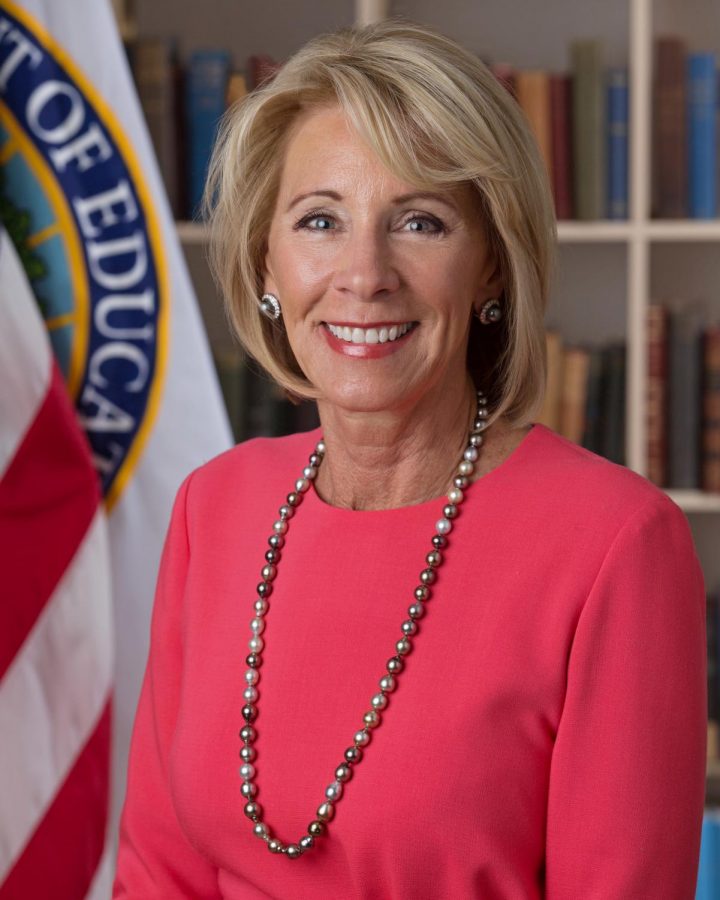Potential Changes to Sexual Assault Rules Could Put Survivors at a Greater Risk
September 12, 2018
New rules about sexual misconduct on college campuses would do more to protect schools and those accused of crimes than victims. The New York Times recently reported on a document it obtained detailing the proposed federal policy changes by Secretary of Education Betsy DeVos.
The proposed rules would include adopting the Supreme Court’s rather narrow new definition of sexual harassment, which states the act is “unwelcome conduct on the basis of sex that is so severe, pervasive and objectively offensive that it denies a person access to the school’s education program or activity.” The previous administration defined sexual harassment as “unwelcome conduct of a sexual nature.” That’s the same definition the College of DuPage adheres to.
The proposed rules would also see that schools are only responsible for investigating occurrences of sexual harassment that happen on their campus or within their program. Schools would also now be allowed to forego the “preponderance of evidence” standard. This states that schools should act upon the lowest amount of proof needed when tackling sexual harassment accusations. Schools would now be able to use a higher standard of evidence such as “clear and convincing.”
The Times’ report stated that Executive Director of the Foundation for Individual Rights in Education Robert L. Shibley said the new rules sound as though they would “…go a long way towards restoring meaningful due process protections to the campus justice system.”
We feel these rules would go a long way towards quelling the pressure on schools to fully investigate these occurrences and make it easier for people to get away with sexual harassment crimes.
There have been several cases this year where we’ve seen negligence from schools in dealing with sexual assault cases. Over 100 former students of Ohio State University came forward to accuse former school doctor Richard Strauss of sexual misconduct. Two of those former student-athletes even filed a class-action lawsuit against OSU, claiming the school knew about the ongoing harassment and did nothing.
In cases of sexual harassment, a school’s top priority should be protecting student victims, regardless of the potential fallout that may have for the campuses’ reputation. Rules must be implemented to ensure people know if they commit these crimes, everything will be done to make sure they are punished to the full extent of the law.
Many people who commit these crimes do so, in part, because they feel there will be no consequences for their actions. Devos’ rules would reinforce that belief. At its core, this is an issue of accountability. Laws that can be seen as giving schools leeway in regards to prosecuting sexual predators have no place in a society where movements like “Times Up” and “Metoo” have highlighted the importance of holding sexual offenders responsible for their actions.
The College of DuPage encourages victims of sexual harassment to seek help from the Counseling and Advising Center or the Dean of Students Office. According to the college’s website, COD “seek[s] to foster a community environment in which all members respect and trust each other. It is the responsibility of all college employees who observe or hear of (an) act of possible sexual misconduct, to immediately report to a college resource.”
These proposed new rules, which a spokeswoman for the Department of Education said were “premature and speculative” when reached for comment, could embolden the people who commit these crimes and the school administrators that move to cover them up or gloss them over. Of course, everyone is innocent until proven guilty. But we shouldn’t have rules that–in any way–help the guilty people slip through justice’s fingers.




















